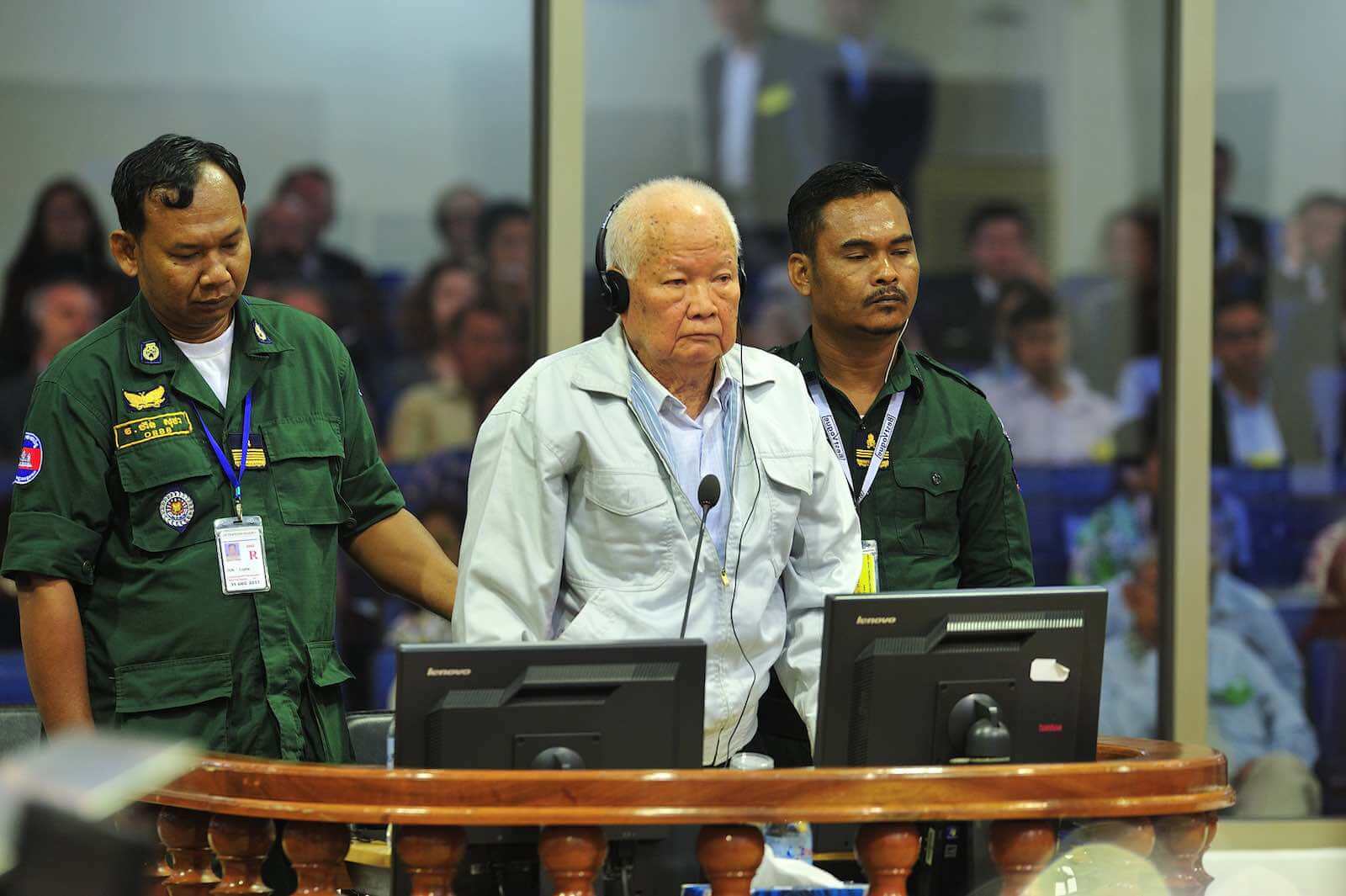Cambodia’s United Nations (UN)-backed Khmer Rouge war crimes court on Thursday upheld its genocide conviction and life sentence verdict against the regime’s last surviving leader, Khieu Samphan.
Samphan, who served as the head of state for the violent communist regime that murdered two million people, or a quarter of the Cambodian population in less than four years during the 1970s, had “categorically denied” the charges after his 2018 verdict. Samphan argued that the Khmer Rouge was simply a political movement aimed at improving the lives of Cambodians. “In my life, never have I imagined that I would form any policy to kill anyone, especially Cambodian people,” he claimed.
Just a few minutes ago, the Supreme Court chamber of the Khmer Rouge tribunal upheld a slew of convictions against Khieu Samphan, the former KR head of state. This is the tribunal's final judgment. pic.twitter.com/zHId8HPyAY
— Andrew Haffner (@ahaffner1) September 22, 2022
Chief Judge Kong Srim, however, said in the lengthy ruling yesterday that the Supreme Court had found “no merit” in Samphan’s “arguments regarding genocide” against ethnic minority Vietnamese and Cham Muslims and “rejects them.”
The panel of international judges also upheld their earlier ruling that Samphan had “direct contemporaneous knowledge of the commission of crimes and shared the intent for their commission”. To this end, the court upheld the 2018 convictions against the former leader for several crimes against humanity—including murder, torture and enslavement—on the basis of a “joint criminal enterprise,” even if he did not personally take part in all the crimes.
We must cherish and protect the ones that live today who survived these horrors and to ensure their lives are meaningful. With hope, their families and them are able to participate in building mechanisms that are envisioned by the communities themselves to deliver accountability.
— Michelle Yesudas (@MichelleYesudas) September 23, 2022
This was the final verdict issued by the Khmer Rouge Tribunal, the entire proceedings of which cost the Cambodian government and the UN more than $330 million. Samphan is the last living defendant in the trial that was launched in 2003 with funding from 10 donor countries, including the United States, Japan, and France. During this period, the tribunal succeeded in prosecuting only five Khmer Rouge leaders, two of whom died during proceedings. To this end, Human Rights Watch declared in 2014 that the tribunal was “too little, too late.”
In 2012, the tribunal first convicted Kaing Guek Eav, also known as Comrade Duch, on charges of crimes against humanity and for his role in overseeing operations of the infamous S-21 prison in Phnom Penh, which butchered 24,000 prisoners and left only seven survivors.
Regardless of today’s outcome, KS would spend the rest of his life in jail, due to the judgement in case 002-1. Still, when the audience in the courtroom were asked to rise for the judges, there was a quiet expectation in the air. 2/18 https://t.co/7w0NMpTd6Y
— Ellen Stensrud (@DrEllenStensrud) September 22, 2022
Although Pol Pot, the Khmer Rouge’s principal leader, died in 1999, his second in command, “Brother Number Two” Nuon Chea, who served as the regime’s deputy secretary, was also convicted alongside Samphan in 2018. Both Duch and Chea passed away while in prison.
Nevertheless, the final verdict was welcomed by survivors. 91-year-old Chum Mey, one of a handful of survivors from the S-21 torture prison, said he was “happy,” describing the sentence as “reasonable” and saying it gave him justice. Lim Ching, who lost almost two dozen relatives, including her mother, told AFP that “the sentence is the right one – the Pol Pot regime did bad things and killed people.”

